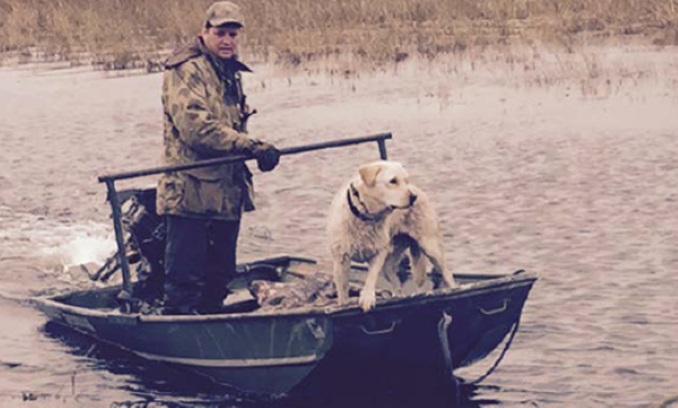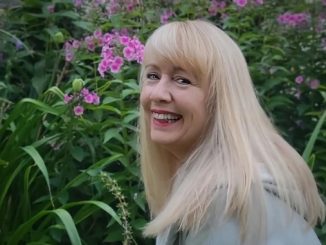This week we spoke to Toronto’s own Edward Seagram, who was awarded Volunteer of the Year for Duck’s Unlimited Canada’s Ontario faction. The provincial volunteers of the year are selected to showcase people like Ed Seagram who have gone above and beyond for DUC and their communities. These are the volunteer leaders, strivers and hustlers who help us move the mark on our conservation goals. A national DUC National Volunteer of the Year is then chosen by a Board-level committee from the outstanding regional nominees from across the country. Keep reading for information about the work him and Duck’s Unlimited Canada are doing!

Describe your charity/non-profit in a few sentences.
Ducks Unlimited Canada connects people to a healthier world through wetland restoration and conservation. We use expert science and strategic partnerships to conserve marshes, ponds and bogs across Canada. These are critical areas that provide habitat for waterfowl and other wildlife, including endangered turtles. Wetlands also provide clean water and help reduce the impacts of floods, droughts and climate change. Currently, we have more than 900,000 acres under our care in Ontario.
What problem does it aim to solve?
Ducks Unlimited Canada’s work is focused on wetlands—one of the world’s most threatened ecosystems because wetlands are undervalued. Today, wetlands are disappearing three times faster than forests. We are committed to protecting these critical ecosystems to ensure a healthy future for Canada. The wetlands we save aren’t just for ducks, they’re for all of us. Since 1974, we have completed more than 4,000 on-the-ground projects here in Ontario.
When did you start/join it?
Ed: I started volunteering with DU in 1993 when I joined the Scarborough Chapter which held a fundraising dinner every Spring.
What made you want to get involved?
Ed: My family owns a 200 acre wetland near Uxbridge, Ontario and I grew up using this property for recreational purposes and for duck hunting with my Father. My Father made an agreement with DU to enhance the wetlands. DU also put out wooduck nesting boxes and we maintained them every year by changing out the woodchip nesting material. I was therefore involved with DU from a very young age and shared the same passion DU has for wetlands and their importance to ducks and other wildlife. We now understand how vital they are for humans as well to purify water, control flooding and help absorb CO2.
What was the situation like when you started?
Ed: DU’s supporters were traditionally made up of duck hunters, as ironically for many, duck hunters were and are some of the biggest conservationists. Over the past 25 yrs, many non-hunters have gotten involved with DU as people have realized how important wetlands are for overall human health. Now DU is more well known outside of duck hunting circles and hunters and non hunters alike along with the Provincial and Federal Governments have come together to conserve wetlands for the benefit of everyone. Basically DU has matured into the most respected main stream advocate to conserve and enhance wetlands with broad based community support. I am currently Co-chair of the DU Toronto Fundraising Dinner that is held at the Ritz Carlton Hotel in late January. This dinner has over 400 attendees and many of the attendees are in their 20’s, 30’s and 40’s. The dinner used to have a much older skew so it is great to see the younger generations get involved with DU.
What more needs to be done?
Despite their incredible environmental and economic value, these ecosystems continue to be degraded and converted for other land uses—particularly in southern Ontario. As they disappear, so do the many benefits wetlands provide—and those include capturing phosphorus and mitigating extreme weather events. Conservation is complex and expensive. We are working with rural landowners, urban developers, business associations and governments at all levels to find solutions—acre by acre—that balance the needs of the environment and the economy.
How can our readers help?
There are many ways people can get involved. You can make a donation or become a member. You can volunteer your time and talent on a local committee that raises funds and awareness for the wetland conservation cause. You can also lend your voice, advocating for effective legislation that supports wetland conservation. But perhaps the easiest way to help is to simply get outside and learn to love a natural space of your own. When you forge a relationship with a natural place, you start to care about its future. As conservationist Edward Abbey once said, “It is not enough to fight for the land; it is even more important to enjoy it.”
Do you have any events coming up?
In a typical year, we have about 320 fundraisers across the country—including 74 in Ontario. During the current pandemic situation, Ducks Unlimited Canada’s in-person fundraising events are on hold. We are in the process of launching some online fundraising activities. Connect with us on our national Facebook page to learn more about it.
Where can we follow you?
You can find information on our website and you can follow us by searching our handle, @DUContario (Instagram, Twitter, Facebook) plus LinkedIn and a new YouTube channel.
PAY IT FORWARD: What is an awesome local charity that you love?
A few of our large-scale conservation efforts in southern Ontario have been in partnership with the Nature Conservancy of Canada. As national charities working to save special natural places, our paths cross frequently and we both have a history of extraordinary conservation achievement across this nation. For example, we worked together to secure Brighton Wetland, one of the last undeveloped shorelines in Presqu’ile Bay on Lake Ontario.

